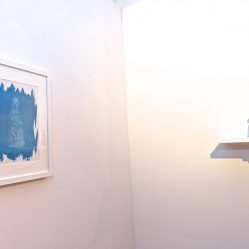TABLE BELL
Alienation refers to estrangement, turning away. This process can be observed in many aspects of human life. However, nowadays the Marxist definition of alienation is overwhelming pointing out the condition of workers in a capitalist economy that is caused by lack of identification with the products of their labour and by the sense of being controlled or exploited. What our dear Karlito did not get the time to describe has been later analysed by others1 as so called „consumerist society“ emerged, imposing new needs that are very distant from the appeals of human nature. People can thus be alienated by work, machine, social and economical condition, in other words, by their material conditions of living, which dispossess them from themselves.
The topic of alienation sets the issue of identity through all possible aspects of human life questioning one ́s relationship to his or her environment, interactions between the individual and group. Moreover, it points to the question of the will and to how deliberate and conscious it might be.
The work, based on cyanotype process, portrays an ancient table bell with the depiction of a lady, presumably its owner, who might have used it while sitting down to eat. She originated from an old French bourgeois family living in La Martinique in the nineteenth century. The current owner is a writer these inherited this table bell from her great-grandmother. The family headed at times the of Code Noir one of the first chocolate bananas factories with a black Africans on the package and has long been one of the main exporters to the European market.
This object is taken as a symbol of alienation and in today’s society we have a myriad of similar objects. Through the political, capitalistic and hype act alienation is deliberately created what people splits and make less “value” in our society.



